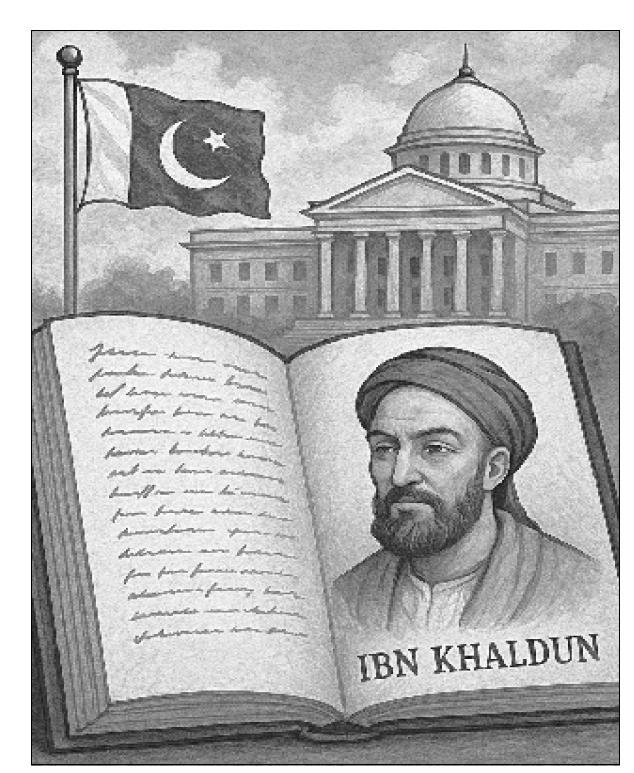Timeless lesson for the govt to learn
2025-07-13
PAKISTAN today finds itself at a critical turning point grappling with economic hardship,politicaluncertainty and a deepening sense of public frustration.
In the face of these mounting challenges, the insights of 14th-century Islamic historian and philosopher Ibn Khaldun, written over 600 years ago in his groundbreaking work Muqaddimah, remain remarkably relevant and timely just as his analysis of the rise and fall of dynasties continues to enlighten modern nations.
One section in the Muqaddimah is titled, `The injustice of taxation brings about the ruin of civilisation`. Ibn Khaldun famously argues that in the early days of a government, the state collects a lot ofmoney even with low taxation rates, but in the later days, when the state is weak and greedy, it collects very little money even with high taxation rates.
This timeless quote was even referenced by Boris Johnson, the former British prime minister, since it captures a critical truth:excessive taxation and sustained state mismanagement erode public trust and economic vitality.
As theorised by Ibn Khaldun, a state`s lifespan can be traced through a five-stage cycle from establishment with low taxes and high public morale to eventual decay, marked by over-taxation, corruption and collapse.
In Pakistan today, rising taxes and governance challenges have weakened the productive capacity of businesses and the confidence of the people. With the state struggling to meet its tax collection targets, it is now resorting to threats of imprisonment a deeply alarming move that sends a chilling message to the very sector that drives productivity and growth.
This approach amounts to collective punishment, where the entire business community is made to suffer for the actions of a few who may have broken the rules.
Ibn Khaldun`s great insights warn that when governments prioritise revenue extraction over fair governance, the result is not stability, but stagnation, resistance and eventual societal disintegration. His framework shows that long-term survival of any state depends on light and fair taxation, transparent and limited governance,andrespectforlabour,trade and property rights.
Pakistan`s policymakers would do well to revisit these principles. Muqaddimah is more than a book, it is a manual for fiscal discipline and institutional renewal. If Pakistan is to reverse its trajectory, it must focus on building consensus,restoringpublic trust, and embracing economic policies that arefair.
In an increasingly uncertain and volatile world, national unity, fair governance, and public trust are no longer ideals, they are essential for survival. Pakistan has faced and overcome immense and frequent challenges throughout the course of its history, showing resilience in the face of adversity.
With a renewed commitment to justice, responsible taxation and inclusive governance, there is every reason for us to believe that Pakistan can once again rise above its current difficulties, and build a stronger, more stable future for one and all.
Adil HamfGodit London, UK




